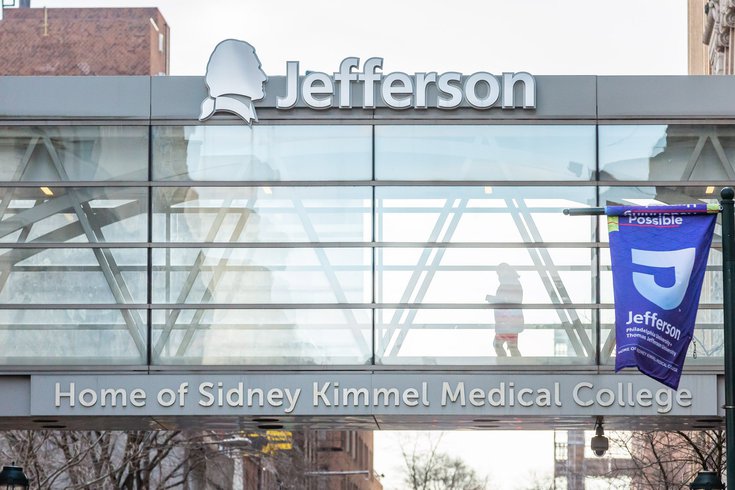
September 28, 2021
 Thom Carroll/for PhillyVoice
Thom Carroll/for PhillyVoice
Jefferson Health and Novartis Pharmaceuticals Corporation's 'Closing the Gap' initiative will increase access to health care and education about cardiovascular disease risk factors for around 200,000 people across five Philadelphia ZIP codes — 19121, 19132, 19133, 19140 and 19148.
Philadelphia residents are dying early from cardiovascular disease more rapidly than residents of any other major city across the country, according to the American Heart Association.
A collaboration between Jefferson Health and the Switzerland-based Novartis Pharmaceuticals Corporation aims to improve conditions for residents of some of the city's high-poverty neighborhoods, where the risk of severe disease is the greatest.
Over the next three years, the "Closing the Gap" initiative will increase access to health care and education about cardiovascular disease risk factors for around 200,000 people across five Philadelphia ZIP codes — 19121, 19132, 19133, 19140 and 19148.
The collaboration totals $3 million, according to the Philadelphia Business Journal, and will be based out of Hansjörg Wyss Wellness Center in South Philly and the Frazier Family Coalition for Stroke Education and Prevention in North Philly.
In addition to improving access to health care, Jefferson and Novartis also plan to address social determinants of health – socioeconomic factors that can put residents of underserved communities at a higher risk of disease. These factors include food insecurity and a lack of stable housing and income, among others.
Jefferson and Novartis' partnership promises to offer housing assistance, workforce development training, improved access to food and physical wellness programs such as diabetes prevention and hypertension management.
"We've put a stake in the ground: We have to reduce the ZIP code gap in health outcomes," Jefferson Health CEO Stephen K. Klasko said. "The solution is creative collaboration with our communities and with future-thinking organizations like Novartis. Health inequity is the greatest challenge we face today, and this initiative will make a difference."
Deaths and cases of disability in which cardiovascular disease was a contributing factor have been on the rise over the past three decades, according to the National Heart, Lung, and Blood Institute. The disease is also among the chronic conditions that can cause severe cases of COVID-19, leading to hospitalizations and deaths.
"It didn't have to be this way, since we have the knowledge and tools to prevent, treat and control cardiovascular diseases," said George A. Mensah, the director of the NHLBI’s Center for Translation Research and Implementation Science. "... Much of this burden could be prevented by implementing proven cost-effective clinical and public health measures that lower risks."
A study published in May 2020 by the University of California San Francisco found that 250,000 of the 1.3 million poor Americans who were 35 years old in 2015 are likely to develop heart disease before they turn 65. That's almost double the rate of individuals in a high-income group.
"Erasing the effects of traditional risk factors including smoking and obesity revealed that 70% of the excess burden of heart disease on this poorer cohort is due to poverty and its associated risks," Cameron Scott with UCSF wrote. "In an analysis of Americans aged 35-64 right now, the same approach attributed 60% of the excess burden of heart disease to poverty."
According to data from the U.S. Census Bureau, 23% of Philadelphia residents reported living in poverty in 2019. A report from the Philadelphia Department of Public Health says heart disease was the leading cause of death in 2019, taking the lives of 3,417 people.